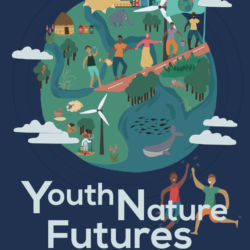 |
Youth Nature Futures for Southern AfricaNadia Sitas, Maike Hamann, Therezah Achieng, Joy Waddell, Hayley Clements, Odirilwe SelomanePublication: CST Publications 2022 - Reports & Policy Briefs To capture visions of nature-futures as imagined by youth from the Global South, the CST facilitated a series of online events in 2021 with youth organizations and networks operating in southern Africa. |
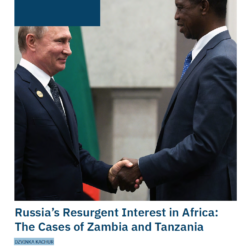 |
Russia’s Resurgent Interest in Africa: The Cases of Zambia and TanzaniaDzvinka KachurPublication: SAIIA Report 2022 - Reports & Policy Briefs This special report looks at Russia’s political, military and economic cooperation with Zambia and Tanzania. It also analyses the Soviet Union’s legacy, from which the Russian government and businesses can benefit in current relationships with African countries. |
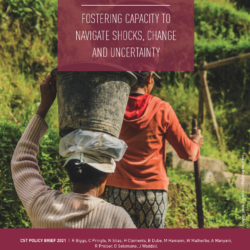 |
Resilience Policy BriefR. Biggs, C. Pringle, N. Sitas, H. Clements, B. Dube, M. Hamann, W. Malherbe, A. Manyani, R. Preiser, O. Selomane and J. Waddell.Publication: CST Publications 2021 - Reports & Policy Briefs Use of the term “resilience” has grown rapidly over the past two decades and is currently something of a buzzword. |
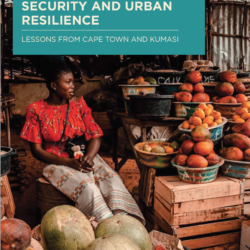 |
Systems approaches to food and nutrition security and urban resilience: Lessons from Cape Town, South Africa and Kumasi, GhanaKushitor, S.B,. Currie, P., Drimie, S., Badu, M., Faragher, T., Bhikoo, J. and Cramer, C.Publication: LIRA 2020 - Reports & Policy Briefs As part of the Inclusive Metabolism project, researchers and city officials from Cape Town, South Africa, and Kumasi, Ghana, shared their perspectives on how improving food systems can have wider socio- economic benefits for society, building resilience to shocks. Important approaches included adopting a food-water-energy nexus approach and embracing the value of informality to build resilience in city food systems. |
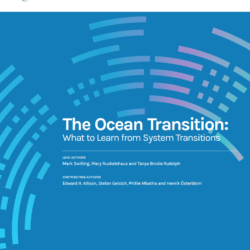 |
The Ocean Transition: What to Learn from System TransitionsMark Swilling, Mary Ruckelshaus and Tanya Brodie RudolphPublication: 2020 - Reports & Policy Briefs This paper proceeds from the assumption that the ocean is a commons. The problem this paper seeks |

